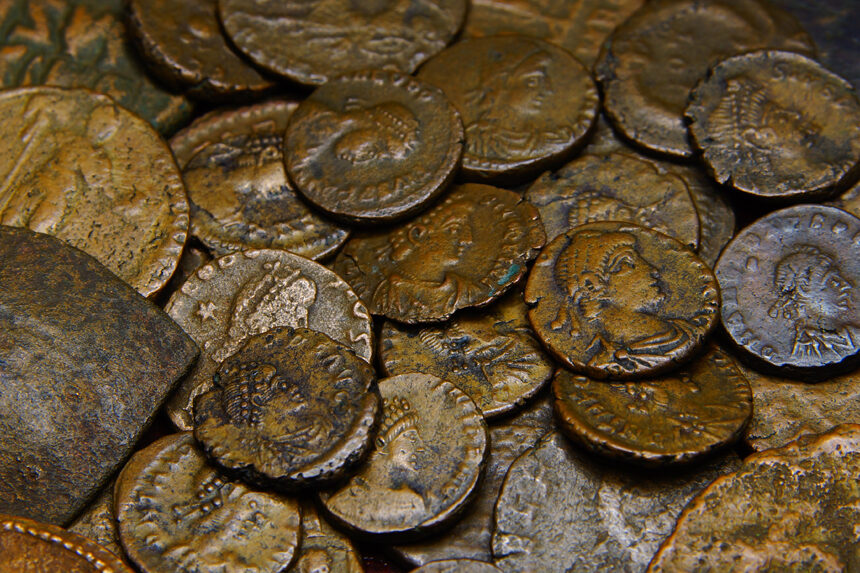Senior managing editor and logophile Andy Hollandbeck reveals the sometimes surprising roots of common English words and phrases. Remember: Etymology tells us where a word comes from, but not what it means today.
With Tax Day fast approaching, many of us have money on our minds. It certainly was on my mind when I approached this week’s word history column. What I discovered is that the history of the word money is, to a certain degree, a history of money itself.
Long ago, before the days of 1099 forms, charitable deductions, and IRS auditors, someone in ancient Rome near the beginning of the third century B.C. noticed that the Greeks had a pretty workable economic system that involved trading in pressed silver coins. (The concept didn’t originate with the Greeks — the oldest known coins came from a region of 7th-century B.C. Turkey — but the Romans probably didn’t much care about that.)
The Romans didn’t have the silver resources of the Greeks, but they did have plenty of bronze. In fact, before the first Roman coins were pressed, people would trade in unformed lumps of bronze (called Aes Rude) that would have to be weighed for each transaction. A bit later, some of that bronze would be shaped into bars (Aes Signatum) for trading — but it was still a matter of weight.
But around 298 B.C., the powers-that-be in Rome started issuing bronze coins (called Aes Grave). While that was a good step toward a modern economic system, it also presented other problems, primarily the existence of two coin systems that didn’t work well together: the Roman bronze coins and the Greek silver coins. It wasn’t until 217 B.C. that Rome began pressing silver coins as well, creating a larger, smoother-running system that allowed for easier trade.
A millennia-long numismatic history and economic theory sprang from these first Roman coins. But for the purposes of this column, we aren’t concerned with the coins themselves but with where they were created. The Romans set up a coin-making shop on Capitoline Hill at the Temple of Juno Moneta.
Moneta was one epithet given to Juno, the wife of Jupiter. One etymology is that the word comes from the Latin monere “to warn,” making this the temple of Juno the Warner. But that’s probably a folk etymology. More likely is that moneta, like much of Juno’s story, is based on Greek — in this case the word moneres “unique,” making this the Temple of the One and Only Juno.
Regardless of where moneta came from, the word became synonymous with making money — literally: Moneta became the generic term for any place that money is made. When the Romans conquered Britain in the first century A.D., they took this word with them, and it stuck around. In Old English texts, we find reference to a place where coins were made being called a mynet, which over time evolved into the modern word mint (which has no relation to the mint in a mint julep).
Centuries later, the Latin moneta had changed into the Middle French moneie, which was borrowed into Middle English during the 14th century as moneye. The final e was dropped a bit later, creating the Modern English word money, that thing you may owe to the IRS by April 18.
Become a Saturday Evening Post member and enjoy unlimited access. Subscribe now



